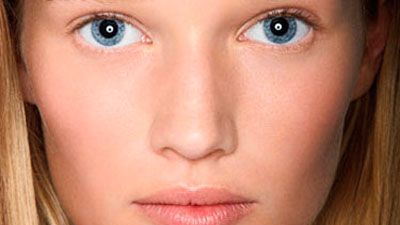
YOUR HORMONES: A WEEK-BY-WEEK BREAKDOWN
YOU KNOW THE BASICS: Your monthly hormone cycle kicks in with your first period and fades out with your last. But what's going on in between? How are estrogen, progesterone, and testosterone affecting your mood, energy, libido, and brain? Here, the comprehensive play-by-play for capitalizing on your hormonal swings to enrich your work, health, and relationships.
Hormones in flux? Here are products to help your skin and body.
WEEK 1
WHAT'S HAPPENING: Estrogen and testosterone start out at rock bottom on the first day of your period, then steadily rise.
MOOD: So much for the myth that women are grouchy during menstruation. Just a few hours after your period begins, your estrogen climbs, which boosts your brain's level of the feel-good chemical serotonin. The result: PMS weepiness and irritability may be replaced with an upbeat, social, and chatty feeling.
ENERGY: You may feel fatigued during the first few days due to low estrogen and testosterone levels, as well as a lack of iron from menstruation. But by the middle of the week, rising hormones, coupled with the end of your period, boost your pep and endurance.
LIBIDO: Rising testosterone is kicking up your sex drive. If you usually skip sex during your period because of the mess, try the Instead Softcup ($10.49 for 24; softcup.com), a diaphragm-shaped device that discreetly collects menstrual fluid, keeping your sheets clean and dry.
Stay In The Know
Marie Claire email subscribers get intel on fashion and beauty trends, hot-off-the-press celebrity news, and more. Sign up here.
WATCH OUT FOR: Headaches--low levels of estrogen may make you more susceptible to them. Also, brush and floss your teeth frequently--the glucose level in your saliva increases three- to ninefold this week, which ups the amount of bacteria that leads to gum disease and tooth decay.
SURPRISE! This is a good week to start a diet—you're already eating 12 percent less this week, according to a Tufts University study, and you have fewer hormone-related food cravings. But don't attempt to kick the smoking habit—yet. You'll be more successful at quitting during the second half of your cycle, reports a 2008 University of Minnesota study. Estrogen may be responsible for giving you a greater "buzz" from addictive substances, like nicotine, so when this hormone level decreases in weeks three and four, you enjoy cigarettes less, making it easier to quit.
HEALTH ALERT: Do a breast self-exam around day seven. A few days after your period ends, the tissue is less dense than in later weeks, making it easier to feel suspicious lumps.
WEEK 2
WHAT'S HAPPENING: Estrogen and testosterone rise all week.
MOOD: High levels of estrogen make you even more optimistic, social, motivated, and cheerful than last week. It's also making you more flirtatious, impulsive, and adventurous than during any other week of your cycle.
ENERGY: You'll notice that you're doing everything faster--for instance, talking, typing, and walking. High hormones are revving you up, so you've got energy to burn.
LIBIDO: Sex doesn't get any better than it does this week, thanks to the surge in estrogen and testosterone, which also makes orgasms more intense and easier to reach. While this may sound like good news for your partner, truth is, you're also more likely to cheat this week. That's estrogen's influence—when it peaks, it makes you take another look around to see if there's a healthier, hunkier guy available to fertilize your waiting ovum.
WATCH OUT FOR: Anxiety attacks, which can be triggered by rising estrogen. If you start to feel overwhelmed, try deep breathing, visualizing a relaxing scene, or repeating a soothing mantra like "peace"—all proven stress-busters.
SURPRISE! Your memory sharpens, you're more eloquent than ever, and you're thinking faster on your feet thanks to high estrogen and testosterone. In addition, the estrogen spike causes pain-squelching endorphins to respond more actively, so book your bikini waxes, dental cleanings, and other ouch-inducers now. Also interesting: Studies show that women's faces appear more feminine and symmetrical now and are more likely to attract a mate (or get the one you have into bed) by the time ovulation rolls around at the end of the week.
HEALTH ALERT: Week's end is best for Pap smears since your cervical fluid is thinnest, yielding the best results. High levels of estrogen make you more optimistic, social, motivated, flirtatious, impulsive, and adventurous this week.
WEEK 3
WHAT'S HAPPENING: The week kicks off with ovulation. That's estrogen and testosterone's cue to take a dive. Then, by day three or four, they rise again. Progesterone climbs all week.
MOOD: During the first few days, you may feel a bit weepy or irritable as estrogen dips—sort of like pre-PMS. By the second half, your hormones all rise together, bringing calm. If you're sensitive to progesterone, you may feel a bit blue as it climbs.
ENERGY: You'll feel sluggish due to lower levels of estrogen and testosterone and rising levels of progesterone, a hormone known for its sedating effects.
LIBIDO: Your sex drive hits a cycle-long low due to progesterone. Orgasms are also more difficult to reach this week.
WATCH OUT FOR: Tongue twisters. Progesterone interferes with your verbal ability, making you stumble over words and forget what you wanted to say. This hormone can also cause constipation and bloating, so load up on water and fiber to stay regular, and reduce your salt intake to prevent puffiness.
SURPRISE! You expend up to 30 percent more fat during exercise, say researchers at the University of Adelaide in Australia, who discovered that the estrogen and progesterone mix promotes fat-burn.
Temper bad PMS with serotonin-boosting activities such as exercising, eating complex carbohydrates, and even shopping.
WEEK 4
WHAT'S HAPPENING: During this premenstrual week, estrogen, testosterone, and progesterone levels plunge.
MOOD: You may find that your mood vacillates from mellow to irritable in a heartbeat. That's falling estrogen's fault. As it plunges, it decreases the brain's level of serotonin and increases chemicals that govern your body's stress response.
ENERGY: You're feeling sapped of pep this week as estrogen and testosterone plummet.
LIBIDO: Your interest in sex may climb as the week goes on, due to your upcoming period. Researchers speculate that as your uterine lining thickens in preparation for menstruation, it may be stimulating nerve endings down below.
WATCH OUT FOR: Migraines, aches, and insomnia due to dipping estrogen. As this hormone level gets lower and lower, it brings down pain-squelching endorphins and sleep-regulating serotonin along with it.
SURPRISE! Temper bad PMS with serotonin-boosting activities such as eating complex carbohydrates (like corn, whole-wheat pasta, and baked potatoes), exercising, and even shopping. Daily supplements of calcium (1200 mg.), magnesium (400 mg.), and vitamins D (360 IU) and B6 (100 mg.) have been shown to help slash pelvic and back pain, mood swings, and food cravings in half, and significantly reduce breast tenderness, irritability, constipation, and headaches. Cutting down on caffeine also helps ease the symptoms.
YOUR HORMONES: DECADE BY DECADE
20s
YOUR HORMONAL MAP: Estrogen, progesterone, and testosterone are being pumped out by your ovaries, following a more predictable pattern than during your teens.
WHAT IT MEANS FOR YOU: Lots of energy, a revved-up libido, killer cognitive skills, and less-severe mood swings.
WHAT YOUR PERIODS ARE LIKE: Pretty regular, which means less-intense cramps.
MAKE IT BETTER: To prevent cramps, take up to four ibuprofen daily on the three days before your period. Ibuprofen (such as Advil or Motrin) prevents the buildup of prostaglandins, hormone-like chemicals that cause cramp pain. Or try prostaglandin-blocking omega-3 fatty acids (found in fish, flaxseeds, and walnuts), or apply heat to the cramped area with a heating pad or hot-water bottle.
HEALTH ALERT: High levels of estrogen keep arteries flexible and plaque-free, but this hormone declines with age, so you become more vulnerable to heart disease. Follow these steps to stave off this deadly condition:
Continue (or start) an exercise regimen. After 20 minutes of working out, your body begins burning off triglycerides.
Check your birth-control pills. If your LDL (i.e., "bad") cholesterol or triglycerides are high, your Pill could be to blame. Ask your doctor if you need to switch.
30s
YOUR HORMONAL MAP: Estrogen, progesterone, and testosterone are still cycling in a predictable pattern, but the overall levels of these hormones decline steadily at this age in early preparation for menopause.
WHAT IT MEANS FOR YOU: You may notice subtle changes in your energy and libido, which decrease as the overall amount of estrogen and testosterone declines.
WHAT YOUR PERIODS ARE LIKE: The length and flow of your period remains regular, but if you've had kids by now, you may find that cramps are less severe due to your cervix widening during childbirth.
MAKE IT BETTER: Take an iron supplement or eat iron-rich foods—e.g., beef or enriched cereal—to boost your energy levels, which are especially low during menstruation.
HEALTH ALERT:
Less estrogen makes it harder to keep belly fat off, but a waist size that's over 35 inches significantly increases your risk for developing diabetes and heart disease.
Bone building slows down, so start doing weight-bearing exercises—like dancing, aerobics, or walking—to build up bone density.
In your 30s, the epidermis loses water-storing hyaluronic acid and slows cell turnover and collagen production. This limits your potential for radiant, youthful plumpness and makes you more susceptible to adult acne (through your mid-30s, while your body's still cranking out sebum-producing testosterone). Hyaluronic-acid-fortified lotions, exfoliating serums, and hormone skin creams with plant estrogens like soy, red clover extract, and grapeseed extract can help (see above), if you start using them early. Louisville, KY, gynecologist Dr. Rebecca Booth, author of The Venus Week, also recommends reducing sugar intake, which boosts testosterone, suppresses estrogen levels, and robs skin of elasticity.
40s
YOUR HORMONAL MAP: You're entering perimenopause—a transition phase that triggers a steeper decline in estrogen and testosterone and erratic hormone shifts.
WHAT IT MEANS FOR YOU: You could experience moodiness, irritability, hot flashes, insomnia, lack of energy, and/or lower libido.
WHAT YOUR PERIODS ARE LIKE: Irregular hormone patterns (remember your teens?) can mean spotting, longer or shorter cycles, missed periods, increased cramping, and PMS symptoms.
MAKE IT BETTER: Severe cramping could be a sign of uterine fibroids, polyps, or adenomyosis. If you have spotting or your flow stops for months and then resumes with heavy bleeding, it could be a sign of something serious, like cervical or uterine cancer. Talk to your doctor right away if you notice any of these symptoms.
HEALTH ALERT: After 40, your risk of breast cancer rises. Do monthly breast self-exams and ask your doctor if you should start having mammograms every one to two years.
50s
YOUR HORMONAL MAP: Menopause means your ovaries run out of viable eggs and stop making hormones. Your remaining hormones are pumped out by adrenal glands at about a tenth of the amount that you've been used to.
WHAT IT MEANS FOR YOU: While plunging estrogen causes some to suffer moodiness, depression, fatigue, irritability, hot flashes, aches, difficulty sleeping, and/or a lower libido, other women don't have any of these symptoms.
WHAT YOUR PERIODS ARE LIKE: When your periods stop for 12 consecutive months, you've officially entered menopause. Until then, expect spotting in between periods and skipping cycles for months, only to have your period suddenly spring up again.
MAKE IT BETTER: Any kind of exercise re-duces cramping and PMS. Plus, activity triggers the production of feel-good endorphins, which help lift mood and ward off heart disease, insomnia, and body stiffness.
-
 Bella Hadid Teases Her New Brand in Three Nearly-Naked Outfits
Bella Hadid Teases Her New Brand in Three Nearly-Naked OutfitsThe supermodel gave fans a sneak-peek at her upcoming label.
By India Roby Published
-
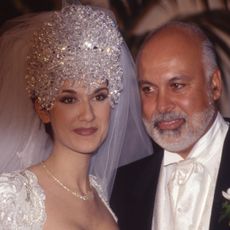 Céline Dion Says Her Epic Wedding Tiara Put Her in the Hospital
Céline Dion Says Her Epic Wedding Tiara Put Her in the Hospital"The pressure was too much."
By Danielle Campoamor Published
-
 30 Nordstrom Picks for the Ultimate Spring Refresh
30 Nordstrom Picks for the Ultimate Spring RefreshA new season calls for new staples.
By Brooke Knappenberger Published
-
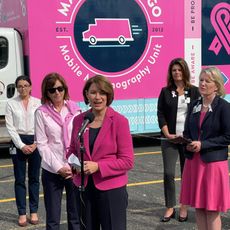 Senator Klobuchar: "Early Detection Saves Lives. It Saved Mine"
Senator Klobuchar: "Early Detection Saves Lives. It Saved Mine"Senator and breast cancer survivor Amy Klobuchar is encouraging women not to put off preventative care any longer.
By Senator Amy Klobuchar Published
-
 How Being a Plus-Size Nude Model Made Me Finally Love My Body
How Being a Plus-Size Nude Model Made Me Finally Love My BodyI'm plus size, but after I decided to pose nude for photos, I suddenly felt more body positive.
By Kelly Burch Published
-
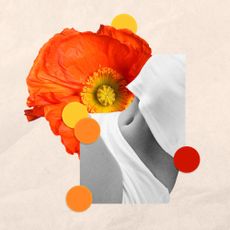 I'm an Egg Donor. Why Was It So Difficult for Me to Tell People That?
I'm an Egg Donor. Why Was It So Difficult for Me to Tell People That?Much like abortion, surrogacy, and IVF, becoming an egg donor was a reproductive choice that felt unfit for society’s standards of womanhood.
By Lauryn Chamberlain Published
-
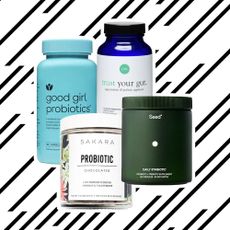 The 20 Best Probiotics to Keep Your Gut in Check
The 20 Best Probiotics to Keep Your Gut in CheckGut health = wealth.
By Julia Marzovilla Published
-
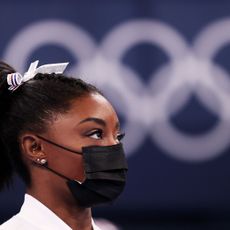 Simone Biles Is Out of the Team Final at the Tokyo Olympics
Simone Biles Is Out of the Team Final at the Tokyo OlympicsShe withdrew from the event due to a medical issue, according to USA Gymnastics.
By Rachel Epstein Published
-
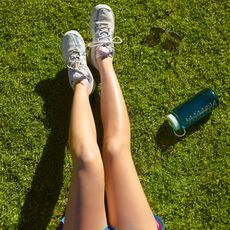 The Truth About Thigh Gaps
The Truth About Thigh GapsWe're going to need you to stop right there.
By Kenny Thapoung Published
-
 3 Women On What It’s Like Living With An “Invisible” Condition
3 Women On What It’s Like Living With An “Invisible” ConditionDespite having no outward signs, they can be brutal on the body and the mind. Here’s how each woman deals with having illnesses others often don’t understand.
By Emily Shiffer Published
-
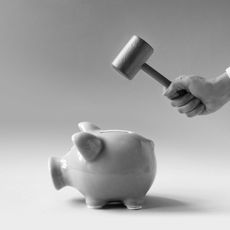 The High Price of Living With Chronic Pain
The High Price of Living With Chronic PainThree women open up about how their conditions impact their bodies—and their wallets.
By Alice Oglethorpe Published